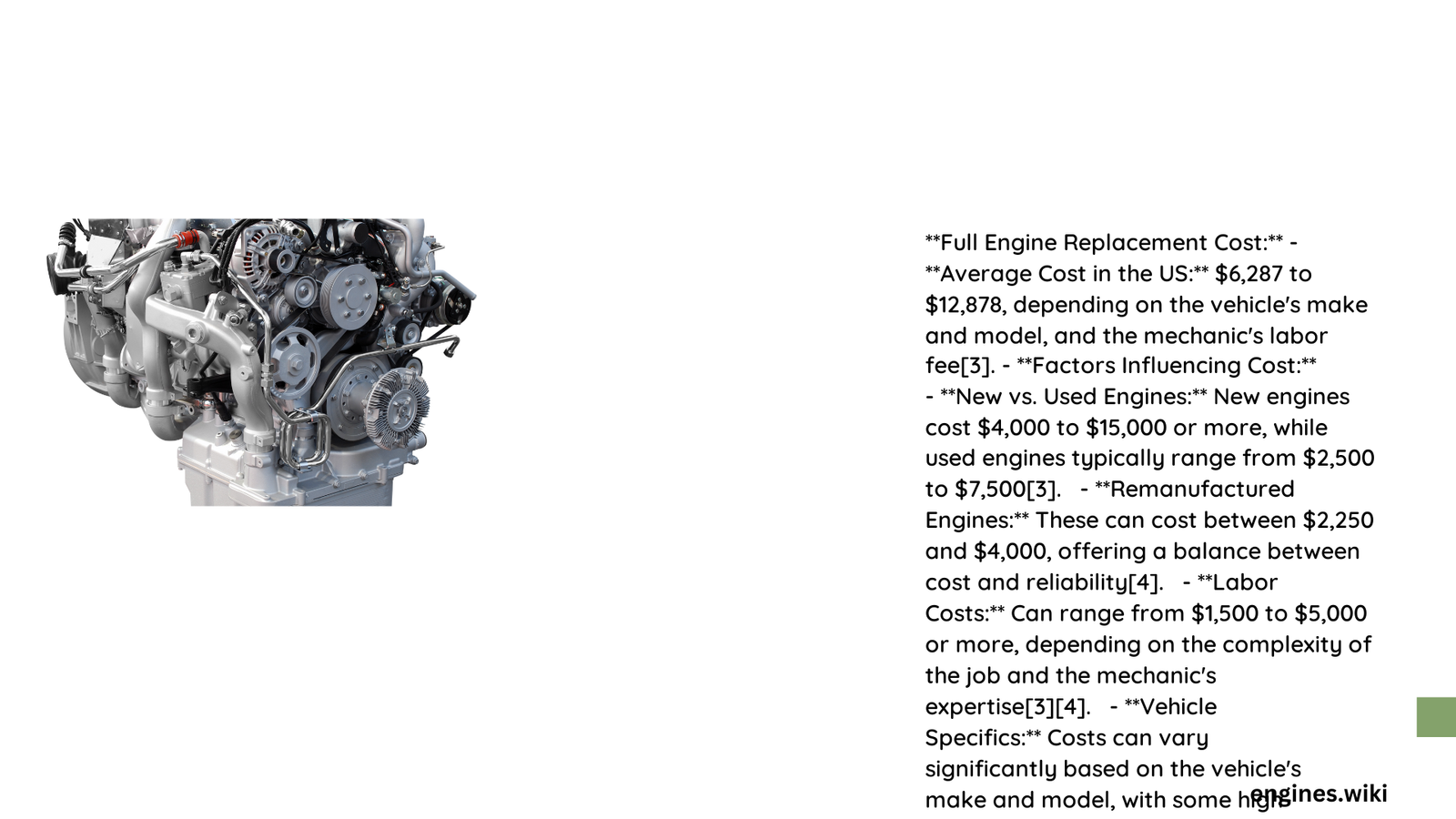A full engine replacement is a complex automotive procedure involving the complete removal of an existing engine and installation of a new or remanufactured engine. This comprehensive process requires specialized tools, technical expertise, and careful planning to ensure vehicle performance, compatibility, and long-term reliability. Vehicle owners typically consider a full engine replacement when their current engine experiences catastrophic failure or when performance upgrades are desired.
What Triggers a Full Engine Replacement?
Symptoms Indicating Engine Replacement Need
Vehicle owners might need a full engine replacement when experiencing:
- Catastrophic Engine Failure
- Severe internal component damage
- Complete loss of engine compression
-
Irreparable mechanical breakdown
-
Performance Degradation
- Consistent power loss
- Excessive oil consumption
- Repeated major repair requirements
Cost Analysis of Engine Replacement
| Engine Replacement Type | Estimated Cost Range |
|---|---|
| Domestic Vehicle Swap | $3,500 – $7,500 |
| Performance Engine Swap | $8,000 – $25,000 |
| Classic Car Replacement | $10,000 – $15,000 |
How to Prepare for Full Engine Replacement?

Essential Preparation Steps
- Diagnostic Evaluation
- Professional engine assessment
- Comprehensive system diagnostics
-
Verification of replacement necessity
-
Compatibility Verification
- Matching engine specifications
- Transmission alignment
- Electrical system compatibility
Required Tools and Equipment
- Professional-grade engine hoist
- Torque wrench
- Engine stand
- Specialized lifting equipment
- Comprehensive socket set
- Diagnostic scanning tools
What Are the Detailed Replacement Procedures?
Removal of Existing Engine
Professionals follow a systematic approach:
- Disconnect electrical connections
- Remove transmission
- Detach exhaust systems
- Drain all fluids
- Carefully extract existing engine
New Engine Installation
Critical installation steps include:
- Precise engine positioning
- Accurate mount alignment
- Comprehensive system reconnection
- Fluid refilling
- Initial system testing
What Challenges Might Arise During Replacement?
Potential Complications
- Unexpected structural modifications
- Electrical system incompatibility
- Custom fabrication requirements
- Complex wiring integration
How to Select the Right Replacement Engine?
Selection Criteria
- Performance Requirements
- Horsepower specifications
- Torque characteristics
-
Intended vehicle usage
-
Compatibility Factors
- Manufacturer recommendations
- Vehicle chassis specifications
- Transmission matching
What Are Post-Replacement Considerations?
Maintenance Recommendations
- Immediate break-in procedures
- Scheduled initial inspections
- Comprehensive system monitoring
- Professional tuning
Warranty and Documentation
- Maintain detailed replacement records
- Verify manufacturer warranties
- Register replacement components
- Keep professional service documentation
Conclusion
A full engine replacement represents a significant automotive investment requiring meticulous planning, technical expertise, and careful execution. Professional consultation and thorough research are crucial for successful implementation.
